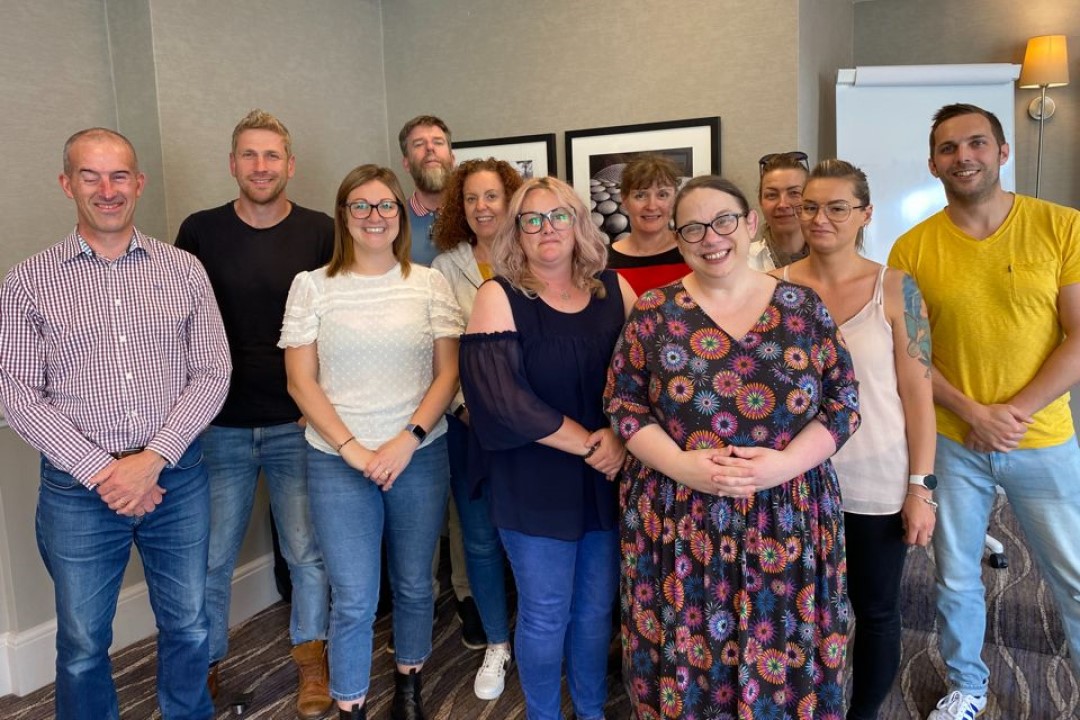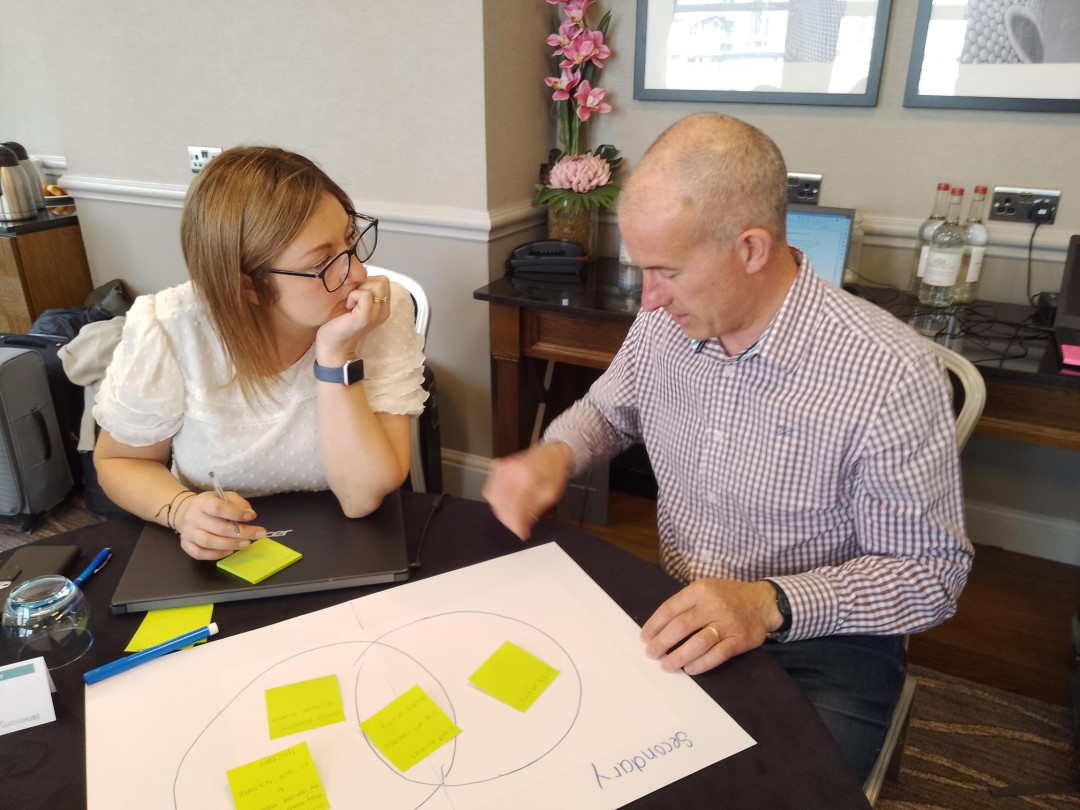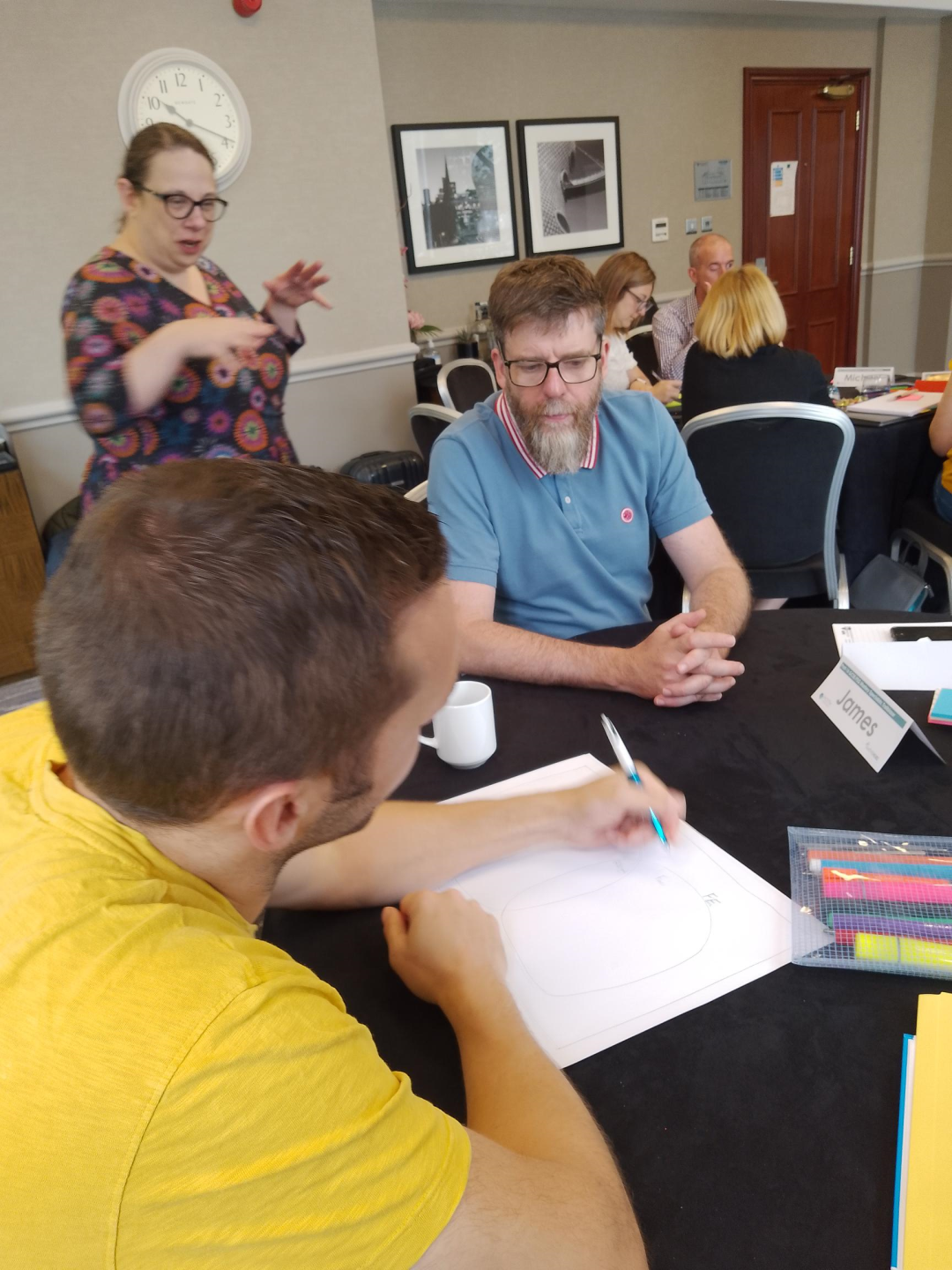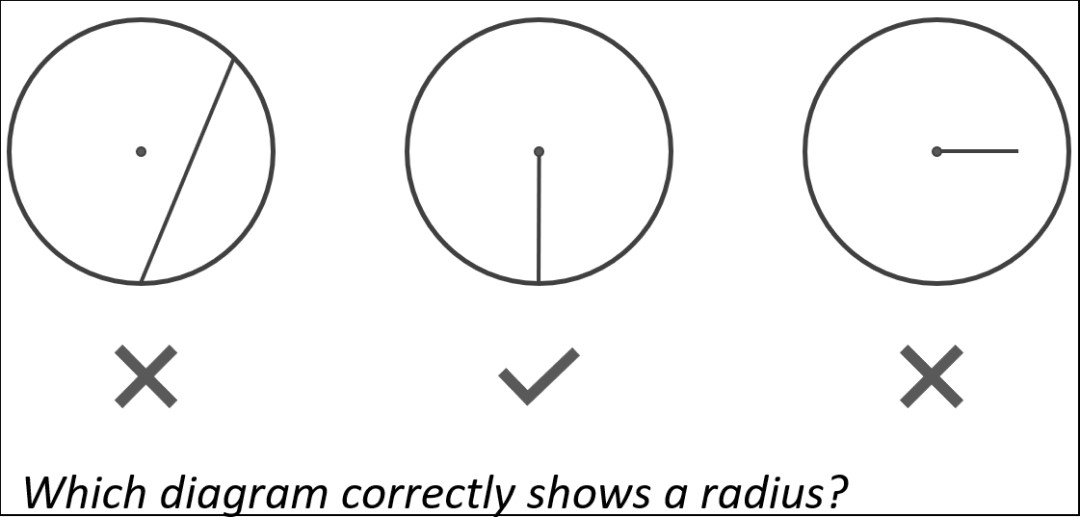How post-16 Mastery Specialists are leading system change
Based on the underpinning principles of teaching for mastery, the Trailblazers explore ways to develop provision in FE mathematics teaching
22/08/2023

In May, we reported on the online launch for the Trailblazers – ten expert teachers in Further Education maths – who will become our first Post-16/FSQ Mastery Specialists. We went to join the group at the start of their first residential meeting in June, to find out more about their plans for leading change in post-16 maths. The residential is part of their training to become Mastery Specialists. Led by Emma Bell, NCETM Director for Post-16 GCSE/FSQ, the group explore the principles and Five Big Ideas of teaching for mastery, and consider how to apply these in their own teaching.
As Emma reported in May, there is certainly a sense within this group of ‘being part of something special’. The root of this excitement is the potential impact that their collective expertise – which is already substantial – and collaboration could have on the lives of young people across the country. They firmly believe that using the Five Big Ideas in Teaching for Mastery, underpinned by the principles in The Essence of Mathematics Teaching for Mastery, is the route to creating this impact. The Trailblazers represent a cross-section of teachers and establishments across England who deliver compulsory maths to 16-19-year-olds. During the year, they will be developing mastery to support their own students who are studying for GCSE or Functional Skills. In September 2023, they will be joined by the first full cohort of 40 Post-16 Mastery Specialists who will initially develop mastery in their own setting, and then support colleagues more widely.
Leading change across the FE system
As full-time teachers in FE, the Trailblazers each teach around 150 students every year, and by initially supporting colleagues in their own colleges, their potential impact is already substantial. But the Trailblazers’ focus is not limited to students in their own setting. One specialist, Aga, a programme manager for post-16 GCSE/FSQ, explains that she has already had experience of working with other FE teachers with the Centres for Excellence in Maths project, and knows that any learning can be shared across the education system more widely when working collaboratively:
For me, it’s about change for students. Something needs to change for those 30% of learners who do not pass GCSE.
The Trailblazers’ compassion for students and their determination to make this change happen is shown in all of their conversations during the residential, as they explore ways to develop teaching for mastery in FE.
Exploring the underpinning principles of teaching for mastery
Mathematics teaching for mastery assumes everyone can learn and enjoy mathematics
Although they know that their students face many challenges, the Trailblazers’ belief in this principle, and their desire to make this a reality for FE students across the country, underpins much of their work.
They are well aware of the anxiety that many students experience when studying maths, and the sense of failure that they often feel from not having yet achieved a GCSE pass. Throughout the day, the group share and reflect on the ways in which they support students with these feelings, so that they can begin to enjoy maths. The group all acknowledge that building positive relationships is a key starting point. Holly, a teacher from Solihull College, describes how she makes time to personally welcome each student into the classroom – regardless of when they arrive at a lesson – to give them a sense of safety, and so that they anticipate that maths lessons will be a positive rather than a negative experience.
Michael, from Harlow College, explains that ‘they need a taste of success as soon as possible, because that’s the motivation to continue to learn’. The group pool their ideas around how to demonstrate to students that they are making progress, even when they do not see their overall grade improving. Aga shows how she breaks down topics into smaller parts and tracks her students’ progress across each part, so she can make clear to students the progress they are making within a topic, even when their overall grade is not yet changing. She happily shares her grids with others in the group who want to try using them with their students.
Mathematical learning behaviours are developed such that pupils focus and engage fully as learners who reason and seek to make connections
The Trailblazers are conscious that their students do not generally look for connections, and need support to reason about the maths they are learning. Luan, who was previously a Primary Mastery Specialist before moving to work in the post-16 sector, comments that ‘getting them to talk about maths is key’. Others agree that inviting students to say what they do know, even when their understanding is incomplete, helps them to engage more in their own learning. Using representations is also key in developing these learning behaviours; Michael talks about seeing ‘lightbulbs going on’ when students are shown a bar model to help them understand percentages, or a vertical number line for directed numbers.
During one workshop, the group explores a range of tasks from the NCETM’s Checkpoints, which are designed to enable teachers to identify the current level of understanding of a concept that students have. They discuss how selected tasks could be used in a way that helps students engage fully and confidently with them.
Teachers continually develop their specialist knowledge for teaching mathematics, working collaboratively to refine and improve their teaching
In one of the day’s workshops, the use of variation is explored. Emma Bell supports the Trailblazers to develop a deeper understanding of the use of variation, through looking at the example of a radius. The group consider how exposing students to both a ‘concept’ and a ‘non-concept’, and using this as a basis for discussion, will help them to develop a deeper understanding of what a radius is.
They also identify how they could use variation to address misconceptions that their students have. It is agreed that helping other colleagues to understand how to use variation – rather than variety – in their teaching, could have a substantial impact.
Curriculum design ensures a coherent and detailed sequence of essential content to support sustained progression over time
Curriculum design is seen as key in helping students succeed either at GCSE or Functional Skills. The Trailblazers acknowledge the challenges involved in making choices about the content to include in the period of time that they have with their students. They discuss how many FE teachers feel that they must teach all of the GCSE content in 32 weeks, but that this can result in ‘surface level knowledge, not deep understanding’. One comments that ‘we’re asking teachers to fundamentally change how they work’, but that students ‘having a sound understanding of the basics is essential – then you can extend them’. Michael explains that showing students which areas of the curriculum are going to support them most is important, and that a focus on number and proportional reasoning is key.
Building capacity across the system
Although these teachers know well that having a qualification in maths can open many opportunities for these students, one comment sums up the view of the work they are doing:
‘We’re not just looking for that Grade 4 – but to add value – to equip young people for life.’
In September, a new cohort will join the Trailblazers in their training to become Mastery Specialists. The challenges are clearly substantial, but with an increasing number of committed, passionate, and expert teachers, working collaboratively to lead change within and beyond their own setting, there is much to feel hopeful about.


